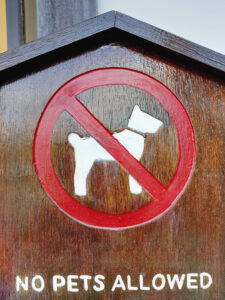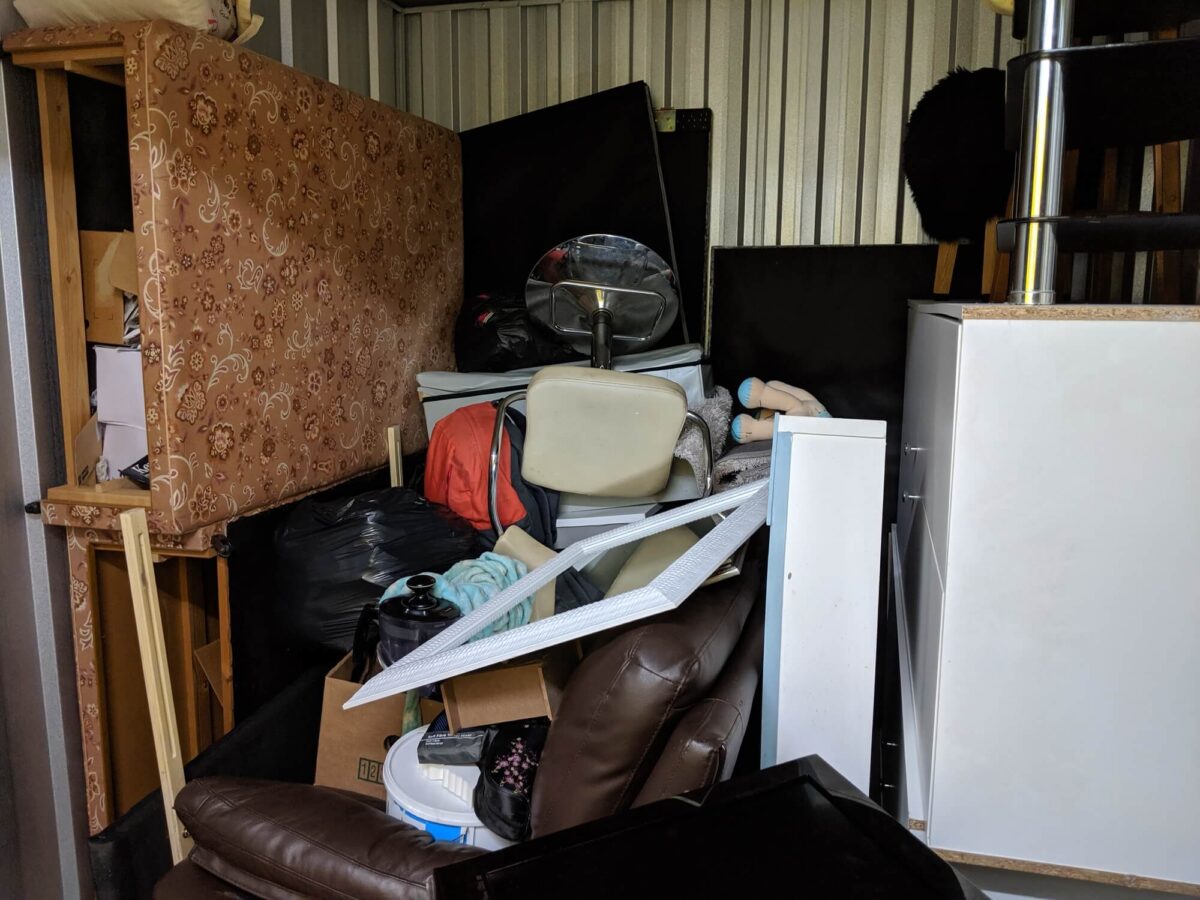In today’s fast-paced world, storage units have become essential for many individuals and businesses dealing with limited space. Whether you’re downsizing your home, moving, or simply decluttering, renting a storage unit can provide a convenient way to temporarily or temporarily store belongings. However, only some things are suitable for storage. Knowing what not to put in a storage unit is crucial to avoid damage, hazards, or violating storage facility policies. In this guide, we’ll explore what not to put in a storage unit.
1. Perishable Items
Perishable goods have a limited shelf life and are prone to spoilage or decay over time. These include food items such as fruits, vegetables, dairy products, meats, baked goods, plants, and flowers. Due to their organic nature, perishable items are susceptible to bacteria, mold, and other pathogens that thrive in storage conditions. Storing perishable items in a storage unit can lead to foul odors, pest infestations, and the spread of harmful contaminants, posing health risks and potentially damaging other items stored nearby.
Therefore, it’s essential to avoid storing perishable items in storage units and instead opt for proper refrigeration or disposal methods to maintain food safety and prevent unnecessary waste.

2. Living Creatures/Animals
Keeping live animals in storage units is not advisable. These spaces lack ventilation, proper temperature control, and natural light for animals to thrive. Doing so is not only unethical but also goes against most facility policies. Besides ethical concerns, storing animals in such conditions can lead to health risks and legal problems. Animals may suffer from stress, dehydration, and even death without proper care.
Additionally, their presence can attract pests like rodents, creating issues for other renters. Therefore, finding alternative arrangements for pets or animals is essential to avoid any problems or risks associated with storing them in a self storage unit.
3. Hazardous Materials
Hazardous materials refer to substances that pose a risk to health, safety, property, or the environment. These materials include chemicals, flammable liquids, explosives, toxic substances, and radioactive materials. Storing hazardous materials in a storage unit is extremely dangerous and, in most cases, against the law. These substances can leak, spill, or react with other materials, leading to fires, explosions, or contamination.
Moreover, exposure to hazardous materials can cause severe health issues, such as respiratory problems, chemical burns, or even death. Proper handling, storage, and disposal of hazardous materials are crucial to prevent accidents and protecting public health and the environment. Therefore, it’s essential to adhere to regulations and guidelines set by local authorities when handling hazardous materials.
4. Valuables and Irreplaceable Items
Valuable and irreplaceable items, like jewelry, important documents, and family heirlooms, are possessions that hold deep meaning or significant monetary value for individuals. Storing these items in a self-storage unit can have many issues. There’s a theft risk, as even secure storage companies may not guarantee complete protection.
Environmental factors like temperature changes, bugs, and rodents could also cause damage. If something were to happen to these items while in storage, the emotional toll would be immense, since they’re often irreplaceable. That’s why it’s wise to keep valuables and irreplaceable items in a secure place, like a home safe or a safe deposit box at the bank, where they’re less likely to be affected by theft or environmental factors.
5. Illegal or Stolen Goods
Illegal or stolen goods are items acquired through unlawful methods or taken without permission. This includes fake items, stolen vehicles, stolen stuff, drugs, or items gotten dishonestly. Keeping illegal or stolen goods in a storage unit is a big problem. It’s not just wrong; it’s against the law and can get you into serious trouble.
Storing these things encourages bad behavior and can also lead to legal issues for the storage company. Plus, it might bring unwanted attention from the police and put other people at risk. That’s why it’s essential to follow the rules and only store things you’ve acquired legally and ethically.

6. Firearms and Ammunition
Its require special consideration regarding storage due to their potential dangers. Firearms, including guns and rifles, are designed to discharge projectiles at high speeds, making them inherently hazardous if mishandled or accessed by unauthorized individuals. Likewise, ammunition contains explosive materials that can cause significant harm if not handled properly.
Storing firearms and ammunition responsibly is crucial to ensure one’s safety and that of others. It’s essential to keep firearms unloaded and secured in a locked container, such as a gun safe or a designated firearm storage unit, separate from ammunition. When it comes to what not to put in a storage unit, it is crucial to avoid storing any explosive items, including fireworks, as they pose a significant risk of causing damage to the unit and endangering the safety of others.
Additionally, ammunition should be stored in a cool, dry place away from heat sources to prevent accidental detonation. Proper storage of firearms and ammunition reduces the risk of accidents and helps prevent theft and unauthorized access, promoting overall safety and responsible gun ownership.
7. Uninsured Items
Uninsured items are stored in storage facilities without protection under an insurance policy. This means that there is no financial coverage to compensate for the loss or damage incurred in the event of theft, damage, or loss. Understanding the risks associated with storing uninsured items in a self-storage unit is crucial. Without insurance coverage, renters bear full responsibility for any damages or losses that may occur, resulting in significant financial setbacks.
Therefore, it’s highly recommended to ensure that valuable or irreplaceable items stored in a self-storage unit are adequately insured to mitigate financial risks and provide peace of mind.
8. Unsealed or Unprotected Items
Unsealed or unprotected items are not adequately shielded from potential harm or damage. They are at risk from dust, moisture, physical damage, and pests. Without protection, electronics, wooden furniture, clothes, and artwork can deteriorate. For example, electronics might be damaged by dust or moisture, wooden furniture could warp or rot in humidity, and clothes or artwork could get stained or moldy.
It’s important to seal, wrap, or store items in protective containers to avoid these issues. Using pallets or raised platforms can also help prevent moisture damage. By taking these steps, people can keep their belongings safe and in good condition while in storage.
Conclusion
In conclusion, it’s crucial to understand what not to put in a self-storage unit, particularly temperature-sensitive or fragile items. By avoiding storing perishable items, living creatures, hazardous materials, valuables, illegal goods, firearms, uninsured items, and unprotected items like household items, you can ensure the safety and integrity of your belongings. Always review the storage facility’s policies and guidelines to maintain compliance and peace of mind. With careful planning, your self-storage unit can effectively accommodate your storage needs while preserving the condition of your items, especially those sensitive to temperatures or fragile.
FAQs
Here are some frequently asked questions about what not to put in a storage unit:
Q. Can I store plants in a storage unit?
Storing plants in a storage unit is generally not recommended. Storage units lack proper ventilation, natural light, and suitable plant growth conditions. Without adequate care, plants may wilt, die, or attract pests, potentially damaging other items stored in the unit. It’s best to find alternative solutions for plants, such as asking a friend or family member to care for them or finding a temporary outdoor location with proper sunlight and water access.
Q. How can flammable materials be safely stored in a storage unit?
To safely store flammable materials in a storage unit, it’s essential to follow a few key guidelines:
- Check with the storage facility to ensure they allow the storage of flammable items.
- Store them in approved containers specifically designed for flammable materials, such as metal cans or containers made of fire-resistant materials. Keep flammable materials away from heat, direct sunlight, and ignition sources.
- Maintain proper ventilation in the storage unit to prevent the buildup of flammable vapors.
- Consider storing flammable materials in a dedicated unit section away from other belongings for added safety.
Q. How do you maintain the condition of artwork and collectibles in a storage unit?
To maintain the condition of artwork and collectibles in a storage unit, it’s essential to follow a few key steps:
- Ensure a climate-controlled-storage unit to regulate temperature and humidity, as extreme conditions can damage delicate pieces.
- Wrap artwork and collectibles in acid-free paper or bubble wrap to protect them from scratches and other physical damage. Use sturdy boxes or containers to store smaller items, and avoid stacking heavy objects on top of delicate pieces.
- Periodically check your stored items to ensure they remain in good condition and make any necessary adjustments to their storage arrangements as needed.
Q. What are the specific restrictions at my storage facility?
You should consult the facility’s rental agreement and guidelines or request a list of prohibited or restricted items directly from the management.
Q. Is it advisable to refrain from storing products in cardboard boxes?
Although cardboard is ubiquitous, it has the potential to attract vermin and degrade over time. For optimal safeguarding, implement plastic containers with closures.
Q. Is it advisable to store items that require regular maintenance?
It is crucial to store items that require regular maintenance, such as vehicles, in suitable conditions to prevent deterioration.
Q. Are there any restrictions on the quantity of products that can be stored?
Most facilities have policies concerning the utmost number of items, particularly when they obstruct access or pose a hazard. Consult with your facility.
Q. Is it advisable to preserve items that hold sentimental value?
If adequately safeguarded, it is advisable to store items that hold significant sentimental value, as storage conditions can be unpredictable.
Q. What consequences may result from the storage of prohibited items?
Upon discovering prohibited items, the facility reserves the right to remove them and impose a charge for any resulting cleansing or damage.
Q. Is it permissible to store cleansing supplies or chemicals?
No, most facilities do not allow the storage of chemicals, cleaning supplies, or any other items that could threaten health and safety.
Reserve Your McDowell Mountain Community Storage Unit Today!
At McDowell Mountain Community Storage, we prioritize the safety and security of our clients’ belongings in Scottsdale, Arizona. We understand the importance of knowing what not to put in a storage unit to maintain a safe environment for all renters. While our self-storage units can accommodate a wide range of items, there are certain things we do not allow, such as perishable items, living creatures, hazardous materials, and illegal goods. By adhering to these guidelines, we ensure the protection of your belongings and the integrity of our facility.
Contact us today to schedule an appointment and learn more about our storage solutions tailored to your needs. Rent a storage unit today!


